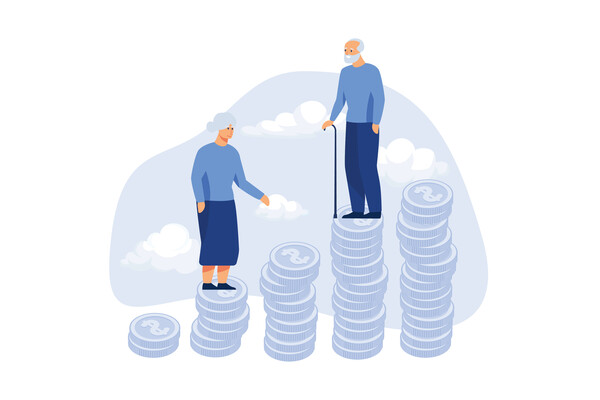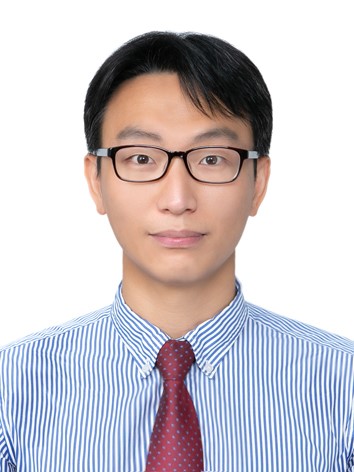The Standard Korean Language Dictionary defines a wealthy individual as "someone who possesses a substantial amount of money, enabling them to lead a life of comfort." In 2021, the Pew Research Center, a non-partisan think tank based in the United States, conducted a survey involving 19,000 adults from 17 countries, including South Korea, to explore the values that give their lives meaning. While "family" emerged as the most crucial value for respondents in the majority of countries, only South Koreans placed "material abundance" at the pinnacle of their value system. Those who successfully attain this material abundance are recognized as affluent.
So, who does our society consider to be affluent? Annually, reports on wealth in Korea are disseminated, and the standard definition for affluence in these reports is typically "individuals with financial assets totaling 1 billion won (approximately $740,000)." According to a report published last year by KB Financial Group, 424,000 individuals, constituting 0.82 percent of the population, met this criterion.

Koreans exhibit a genuine desire to attain wealth. The aspiration for financial freedom and early retirement, commonly referred to as FIRE (Financial Independence, Retire Early), has emerged as a notable social trend in Korea in recent years. Furthermore, during periods of soaring asset markets, individuals who bolster their financial holdings through borrowing and other strategies often earn the envy of their peers.
Financial history has repeatedly shown that when individuals suddenly amass wealth and generate a global buzz, it often coincides with the peak of an economic bubble. Therefore, we must exercise caution. Nevertheless, the inclination of people to rush headlong into speculative opportunities, akin to moths drawn to the allure of wealth, persists unchanged until the bubble inevitably bursts.
Money undeniably plays a pivotal role in today's world. In a market-driven economy, our essential survival needs are primarily met through monetary means. Studies even suggest a significant correlation between housing conditions and socioeconomic status with the rate at which individuals biologically age. Furthermore, money wields a substantial influence on a person's health span. For instance, in the United States, individuals belonging to the top 10 percent of the economic stratum enjoy a life expectancy roughly 20 years longer than their counterparts in the bottom 10 percent.
As reported by the Ministry of Health and Welfare, South Koreans within the lowest 20 percent income bracket exhibited a healthy life expectancy of 65.2 years, which is notably 8.1 years shorter than those in the highest 20 percent, having a healthy life expectancy of 73.3 years, as of 2018. However, we must recognize the potential detriment when money becomes an ultimate end in itself, overshadowing its intended role as a means to secure our basic needs.
I believe that a contributing factor to this materialistic perspective is our tendency to define wealth by a single number, such as having 1 billion won in financial assets or simply "having a lot of money." What often escapes our consideration is the concept of having "enough" to sustain a comfortable life. By "enough," I mean a financial system that consistently provides more income than one spends. It seems more accurate to define a wealthy individual as someone who can maintain this financial surplus throughout their lifetime, while also preserving a sound body and mind, free from subjective or objective deprivation.
By structuring one's life from this vantage point, it becomes easier to establish a virtuous cycle of prosperity and well-being without succumbing to impatience. Instead of fixating solely on amassing wealth and accelerating its growth, you gain the capacity to reflect on what might potentially detract from your overall life fulfillment.
Especially in an age where centenarians are becoming more common, it's prudent to establish multiple financial systems from a lifecycle perspective. These systems consist of four key components, and they are far from being get-rich-quick schemes.
First and foremost, prioritize living a healthy life that ages slowly, aiming to stave off diseases and frailty. By delaying the onset of illness, frailty, and the need for care, you can significantly reduce expenses. For instance, the average monthly cost of long-term care for an elderly person living at home, including living expenses, hovers around 2 million to 3 million won per month, with caregiver labor being the most substantial expenditure. As of 2023, if you require round-the-clock care, you can expect to spend nearly 5 million won per month on caregiver labor. To generate a monthly income of 5 million won from interest on deposits, you would need an asset base of nearly 2 billion won. Even a billionaire may require care, underscoring the immense value of maintaining a robust body and mind in old age, which is essentially worth 2 billion won.
Secondly, during the phase of income generation, it's crucial to place a high value on the money you earn. Within our lifecycle, there's typically a span of around 30 years in the middle where we experience a surplus of income. Unfortunately, many individuals squander this valuable period on indulgence and extravagance, a decision that may have adverse consequences in later life. In contrast, practicing prudence and restraint in your spending not only preserves your financial resources but also provides peace of mind.
Thirdly, incorporate a plan for a vibrant life characterized by continuous learning and lifelong social involvement. Discover a passion or interest that truly engages you, and maintain an active mindset to generate a consistent cash flow throughout your lifetime. This approach can create a substantial financial cushion. Furthermore, staying active in various activities serves as a natural defense against chronic illnesses, frailty, and cognitive decline. Even low-paying endeavors, such as pursuing hobbies or volunteering, hold a significant role in driving the cycle of prosperity.
Fourthly, adopt a long-term perspective when managing the wealth you accumulate through the aforementioned three strategies. You'll be less likely to fail by avoiding impulsive actions and, instead, adopting a calm, century-long perspective when it comes to your investments and asset allocation.
By adhering to these four principles, your wealth will naturally grow, and the capacity to sustain it will expand over time, ensuring its preservation. According to the National Pension Service's 2021 data, people's notion of an adequate retirement budget was 2.77 million won per month for a couple and 1.77 million won per month for an individual. However, in reality, the actual amount required tends to be much lower.
The 2022 Household Welfare and Finance Survey reveals a substantial decline in consumption expenditures starting in one's 60s, with households in their 70s, averaging 1.9 members, spending an annual average of 19.32 million won.
Financial institutions often invoke fear by propagating the need for 1 billion won for retirement, leading many individuals to make hasty investments and ultimately deplete their retirement funds. Instead, achieving financial freedom during old age hinges on embracing the system of the truly affluent, who consistently maintain an income that covers their basic needs.

Jung Hee-won, a geriatric physician at Asan Medical Center, graduated from Seoul National University College of Medicine and trained at Seoul National University Hospital. During his med-school days, while practicing the horn, he realized the importance of muscle maintenance and became interested in sarcopenia. His main research interests include frailty, sarcopenia and establishing age-friendly health systems for acute hospitals. This column was originally published in Chosun Ilbo in Korean on Nov. 1. -- Ed.
Related articles
- [Column] The median age at which you’re treated as an adult is 45, not 30
- [Column] Walk 2 hours a day and eat healthy, but still anxious about health?
- [Column] Want to avoid dementia? Build cognitive reserve with lifelong learning
- [Column] Taking more than 10 medications? Side effect is guaranteed 100%
- [Column] Age 65 no longer the focus: Elder care needs urgent attention, similar to national pension fund
- [Column] Healthy life expectancy at 73.1 years: Korean elderhood is getting healthier
- [Column] ‘Decline in strength during old age stems from indulgences in youth’
- [Column] Should every older adult end up in nursing homes? No, we can slow the trend.
- [Column] Seatless subway in Seoul is like a game of musical chairs
- [Column] Slow aging is getting trendy and enjoyable for Korean X users in their 20s-30s.
- [Column] What matters is patient-centric healthcare, not the 2,000-seat increase

